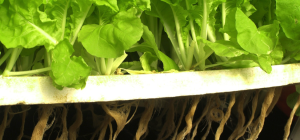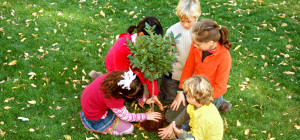An indoor garden can be practical as well as beautiful. Aside from being an enjoyable hobby, having plants indoors can brighten a room, and provide fresh oxygenated air. Depending on what you choose to grow, your indoor garden could also offer food for your table, as an assortment of different edible plants can thrive in an indoor setting. There are many people who do not have the outdoor space available for conventional gardening, or find themselves unable to keep up with the physical demands of an exterior garden. An indoor garden can be an excellent solution to these problems, but there are several things you need to think about before you dive in.

Know What You Want to Grow
There are a great variety of herbs, flowers, fruits, and vegetables that can be grown indoors. Being inside means you can control the environment in which your plants grow, allowing you to raise out of season or even non-native plants. A range of herbs, such as mint, basil, parsley, coriander, rosemary, and chives can be cultivated indoors, in small pots on a windowsill. If these plants ever grow too large, you can simply take a cutting to continue growing indoors, and transfer the original plant into the garden. Vegetables can also be grown indoors with little hassle, and tomatoes, salad greens like spinach, and beans are good places to start. Hot peppers are also an excellent beginners plant, as they grow well inside, can be easily harvested, and can also be preserved a number of ways.
If you want a larger garden, you may need think a little more carefully. Consider choosing plants which have similar requirements in terms of light, temperature, and humidity to minimize the amount of work required.
Evaluate the Space You Have Available
Where you place your plants will at least partially determine the conditions in which they grow. Though you can absolutely work with whatever space you have available, you need to be aware of the temperature, the availability of light, and the humidity, thought this can be simulated using a misting spray.
Once you have thought about these things, you may not have a vast area to dedicate to your indoor garden and that’s OK. Some indoor gardens can be arranged into shelves to save space, and some are only as large as a window sill. It is most important to make sure your garden is not in the way, and will not be at risk of being knocked over and damaged. Choosing an area with a waterproof floor, such as tile or linoleum is also a good idea, to help easily clean up any messes which might occur.
Light is Essential
To grow healthy plants, light is essential. All plants require light for photosynthesis, the process by which plants produce their energy. A plant without sufficient light will grow tall, pale, and thin, as it attempts to seek out the light it is missing. These plants will not have the energy required to flower or bear fruit. It may be enough to simply place your plants on a windowsill, but if you have a larger garden, or your access to natural light is insufficient, you should think about purchasing grow lights. These come in a range of sizes, and energy levels, and you are sure to be able find one that will fit in with your indoor garden, providing all the light your plants will need to grow strong and healthy.
Evaluate Your Growing Medium
Soil from the park or the backyard can unfortunately be full of weeds, potential pests, and clay or rocks. To grow inside you will need to purchase indoor growing soil, which should be easily available from your local garden center. Something else to consider is hydroponic gardening, which can aid plants in growing faster and increase the yield of certain products. There are several systems of hydroponic gardening available, and which one you choose would depend on your available space, and what you wanted to grow.
Conclusion
If you do decide an indoor garden is something you would like to try, there are a great many resources to help, from books, to TV shows, as well as your local garden center or nursery employees. Starting small and building up your garden can be a great pastime, and hugely rewarding. There is really no replacement for fresh produce, grown with your own hands.







